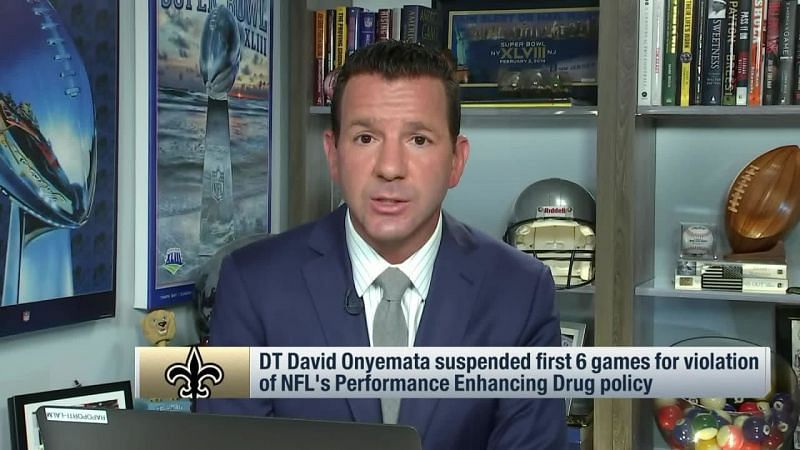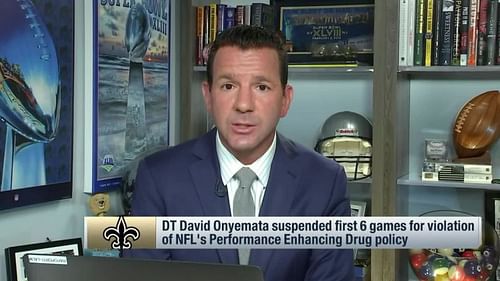
What is the NFL's PED policy?

The NFL's PED policy has been labeled a bit harsh over the years, with many players receiving random drug testing after amazing performances on the field. For example, punter Pat McAfee was given a notification for a random test after hitting a 65-yard punt in the preseason and a hell of a tackle on a return. Safety Julian Blackmon had a great rookie year in 2020 and received three "random" tests in a single week. So what exactly is the NFL's PED policy and how are players punished for violating it?
NFL's PED policy
The NFL's PED policy prohibits the use of anabolic or androgenic steroids, including exogenous testosterone. This includes any type of steroid that anyone can purchase online. Stimulants and human/animal growth hormones (both natural and synthetic) are also illegal. Under the PED policy, players, coaches, athletic trainers, and agents are not allowed to supply, use, or encourage the use of PEDs.
The PED policy is in place because the league finds them to threaten the fairness and integrity of the game, as not everyone is willing to use them and it can give a physical advantage to the users.
Most violations of the PED policy come from urine samples during both scheduled and random testing. A first violation of the policy can warrant up to a six-game suspension without pay (the average is usually four games). The use of a masking agent is a two-game suspension. The use of steroids, stimulants, or HGH is a four-game suspension. Any attempt to manipulate a test is six games. A second violation is 10 games and a third violation can be a season-long suspension, sometimes two.
If a player fails a test during the offseason, there are usually no suspensions, but the league does make them complete a substance abuse program. Players can appeal any suspension and commissioner Roger Goodell has a final ruling.
The recreational drug policy (marijuana, alcohol, etc) falls under a different guideline and is sometimes confused for the PED policy. With more states legalizing marijuana, the NFL has tweaked the policy accordingly. Between April 20th (4/20) and August 9th, the NFL does not test for weed. The THC threshold for a positive test has also been increased by almost 400%.
The first violation of this policy warrants going through the NFL's drug program. A second violation is a two-game fine, the third is a four-game fine, the fourth is a four-game suspension, the fifth time is 10 games, and a sixth violation is a year-long suspension. WR Josh Gordon may just be the most popular player to have failed the recreational drug policy numerous times.